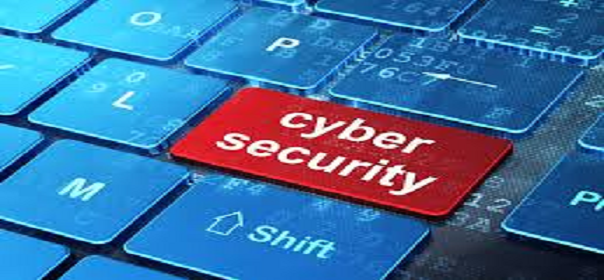Cyber incidents are fast moving and increasing in number and severity. When a cyber incident occurs, the attacked enterprise responds with a set of predetermined actions. Get trending information on exploits, and vulnerabilities every week to help your organisation to be better equipped to avoid being victim of cybercrimes. Anglo African brings you the weekly cyber-attack news wrap-up and remedy tips to support your business to defend against hackers.
A Facebook spam campaign has been found distributing Nemucod and Locky ransomware. The campaign was discovered by security researchers Bart Blaze and Peter Kruse when the pair saw spam being distributed over the Facebook instant messaging system over the weekend of 19 November.
Numerous journalists and professors are taking to social media to report that they have received an alarming message regarding state-sponsored hacking when accessing their Gmail or other sites that use their Google account. Journalists who received the warning include Nobel Prize-winning economist and New York Times columnist Paul Krugman, New York magazine’s Jonathan Chait, Politico’s Julia Ioffe, GQ’s special correspondent Keith Olbermann, Vox’s Ezra Klein, Yahoo News’ Garance Franke-Ruta, and one of President Barack Obama’s former speechwriters, Jon Lovett.
Cautious computer users put a piece of tape over their webcam. Truly paranoid ones worry about their devices’ microphones—some even crack open their computers and phones to disable or remove those audio components so they can’t be hijacked by hackers. Now one group of Israeli researchers has taken that game of spy-versus-spy paranoia a step further, with malware that converts your headphones into makeshift microphones that can slyly record your conversation.
Top Ten Cyber Security Tips for you to be safe from hackers:
Realise that you are an attractive target to hackers. Don’t ever say “It won’t happen to me.”
Practice good password management. Use a strong mix of characters, and don’t use the same password for multiple sites. Don’t share your password with others, don’t write it down, and definitely don’t write it on a post-it note attached to your monitor.
Never leave your devices unattended. If you need to leave your computer, phone, or tablet for any length of time—no matter how short—lock it up so no one can use it while you’re gone. If you keep sensitive information on a flash drive or external hard drive, make sure to lock it up as well.
Always be careful when clicking on attachments or links in email. If it’s unexpected or suspicious for any reason, don’t click on it. Double check the URL of the website the link takes you to: bad actors will often take advantage of spelling mistakes to direct you to a harmful domain.
Sensitive browsing, such as banking or shopping, should only be done on a device that belongs to you, on a network that you trust. Whether it’s a friend’s phone, a public computer, or a cafe’s free WiFi—your data could be copied or stolen.
Back up your data regularly, and make sure your anti-virus software is always up to date.
Be conscientious of what you plug in to your computer. Malware can be spread through infected flash drives, external hard drives, and even smartphones.
Watch what you’re sharing on social networks. Criminals can befriend you and easily gain access to a shocking amount of information—where you go to school, where you work, when you’re on vacation—that could help them gain access to more valuable data.
Offline, be wary of social engineering, where someone attempts to gain information from you through manipulation. If someone calls or emails you asking for sensitive information, it’s okay to say no. You can always call the company directly to verify credentials before giving out any information.
Be sure to monitor your accounts for any suspicious activity. If you see something unfamiliar, it could be a sign that you’ve been compromised.




